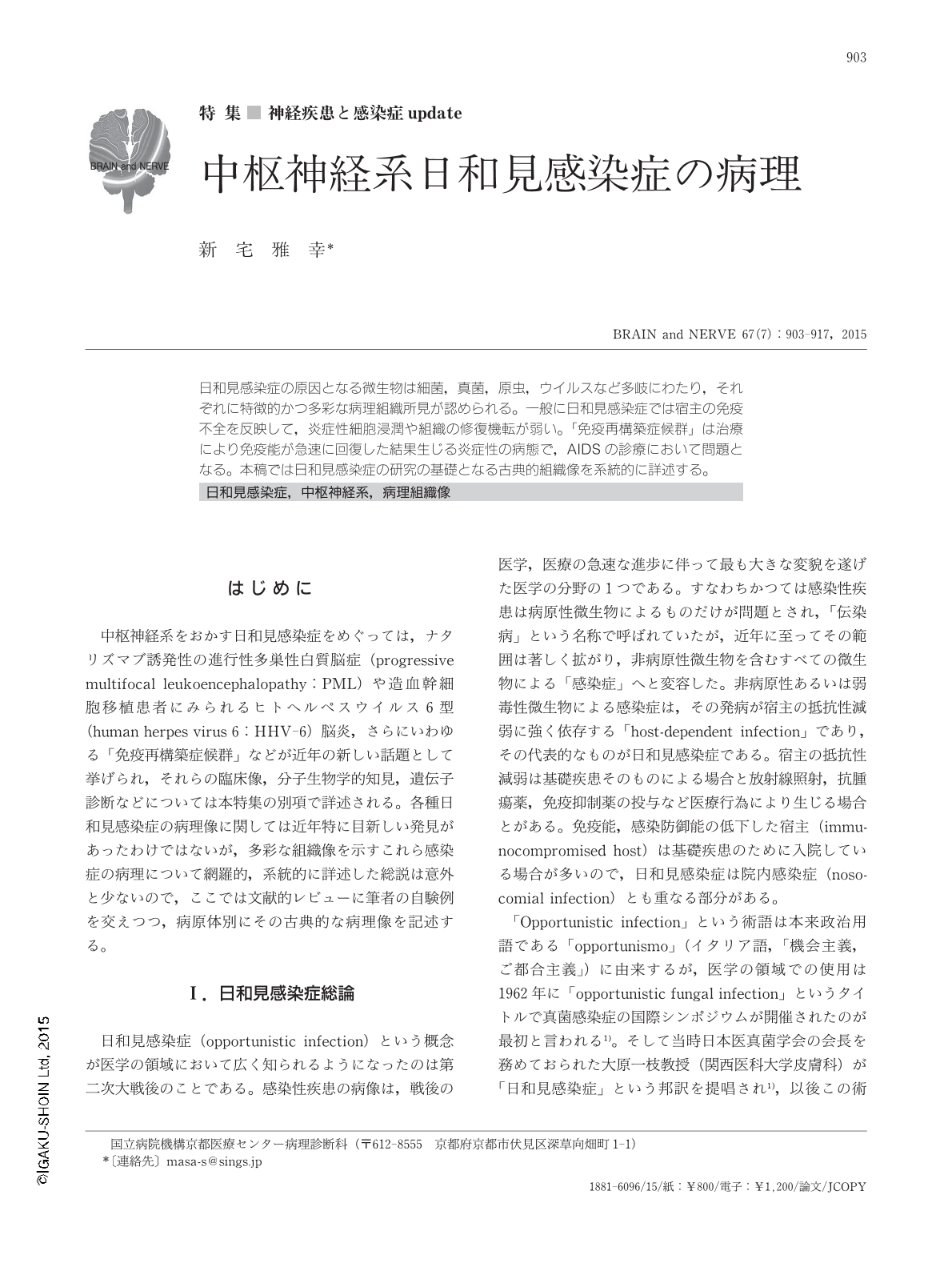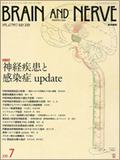Japanese
English
- 有料閲覧
- Abstract 文献概要
- 1ページ目 Look Inside
- 参考文献 Reference
日和見感染症の原因となる微生物は細菌,真菌,原虫,ウイルスなど多岐にわたり,それぞれに特徴的かつ多彩な病理組織所見が認められる。一般に日和見感染症では宿主の免疫不全を反映して,炎症性細胞浸潤や組織の修復機転が弱い。「免疫再構築症候群」は治療により免疫能が急速に回復した結果生じる炎症性の病態で,AIDSの診療において問題となる。本稿では日和見感染症の研究の基礎となる古典的組織像を系統的に詳述する。
Abstract
Opportunistic pathogens affecting the central nervous system include bacteria, fungi, protozoa, and viruses, and infection with these microorganisms exhibits varied histopathological findings. In opportunistic infections, the inflammatory and reparative mechanisms of the affected tissues are generally weak, reflecting a decrease of the protective immunological response of the host. In recent years, the so-called "immune reconstitution inflammatory syndrome," which is caused by abrupt restoration of the immunological activity due to therapy, has emerged as a new clinicopathological problem, especially in acquired immunodeficiency syndrome patients. In this comprehensive review, detailed classical histopathological descriptions on the various aspects of opportunistic infection affecting the central nervous system are provided, with the intention to provide a basis for further molecular pathological studies.

Copyright © 2015, Igaku-Shoin Ltd. All rights reserved.


